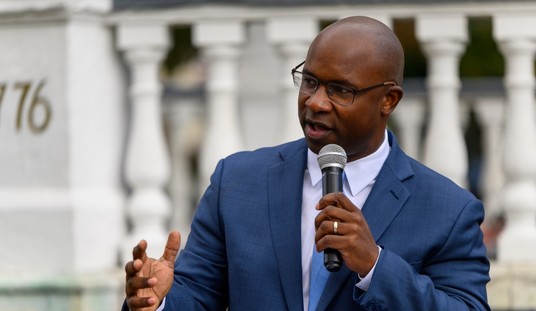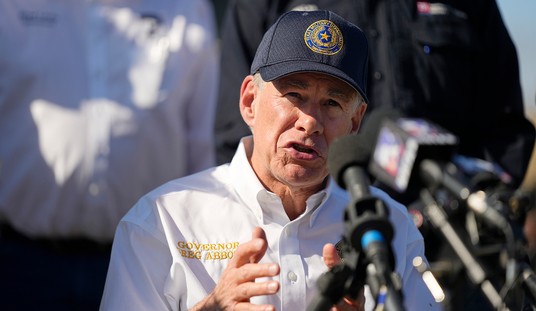William Galston of Brookings recently published “Six Months to Go: Where the Presidential Contest Stands as the General Election Begins,” which compiles a wealth of polling to paint a fairly gloomy portrait of Pres. Obama’s reelection prospects:
Today, while Obama enjoys about a three-point edge over Romney, his electoral support remains well short of 50 percent. His job approval remains significantly lower than that of the past five incumbents who won their reelection contests and is actually two points lower than Jimmy Carter’s was at this point in 1980. (It is four points higher than George H. W. Bush’s job approval in 1992, however.)
Other yellow lights are flashing as well. One recent survey found that only 46 percent of the people think that Obama deserves to be reelected, versus 49 percent who do not. He receives mediocre grades for his handling of the economy and job creation. Another survey found fully 48 percent of the electorate would “never” vote for Obama, suggesting a ceiling below his 2008 share of the vote. (The corresponding figure for Romney was 46 percent.) And despite some recent improvement, key parts of the Democratic base remain less excited about the 2012 contest than are their Republican counterparts.
Read The Whole Thing, but the vast majority who don’t can get a flavor of it from TIME’s Michael Scherer.
The reactions to Galston’s report seem misguided. David Brooks wonders why Obama isn’t getting “crushed”, as the “economic climate is as bad as or worse than it was in 1968, 1976, 1992 and 2000, years when incumbent parties lost re-election.” Brooks concludes that Obama is benefiting from the Emerging Democratic Majority (despite Galston noting the lack of enthusiasm among said Majority) and because the president is just so gosh-darned likeable, what with the creased trousers and all (although the new USAT/Gallup poll is one of several showing Romney’s favorables climbing).
The unlikely duo of James Pethokoukis and Juicebox Mafioso Ezra Klein explain how Brooks gets it wrong, arguing Obama’s buoyancy may be explained by the economic fundamentals and incumbency (although Klein does the latter implicitly). I generally agree with them about the economics, but less so regarding incumbency. John Sides, one of the co-creators of Klein’s Wonkblog model, concedes the model overestimated the incumbent party’s vote share in 1992-2008, and that the model’s estimates for 2012 also feel a bit too optimistic for Obama. Similarly, Alan Abramowitz’s “Time For a Change” model, which gives Obama a good chance of winning a second term with modest economic growth and an approval rating in the low- to mid-forties has over-predicted the vote of the incumbent candidate by at least 1.85% in each of the last four presidential elections.
Any discussion of why Obama isn’t being “crushed” is disappointing because early head-to-head polls are not very reliable in predicting election results. The classic case is May 1980, when Carter was ahead of Reagan by 9%, despite a much higher misery index than today. A more useful reaction might be to treat Galston’s report as a prism through which to view the Romney and Obama campaigns.
For example, the report suggests Romney has two major problems. First, only 31% of Americans think Romney has a clear plan for fixing the economy — even worse than the 36% who think Obama has one. Second, Galston takes seriously the possibility that Obama could gain traction if he succeeds in painting Romney as a right-wing extremist (I tend to doubt this is possible, but it will not be for lack of trying).
The main lesson for Romney seems to be that he should not only critique Obamanomics, but also spend more time on Romneynomics. Granted, the election is mostly a referendum on Obama and Romney’s 160-page economic plan is more a plan to have a plan than a plan. Nevertheless, Bill Clinton did alright in 1992 as the Man With a Plan, so Mitt ought to mention his more often. It might be even better to bumper-sticker a few big ideas because few will read the 160-page version.
Moreover, while Romney rightly focuses on controlling government spending, Matt K. Lewis is likely correct that talking up economic growth is at least as important politically. If done well, this approach would also blunt the left’s campaign tactics. Again, Bill Clinton would be the model here: Romney can be the guy who is working on America’s real problems, while Team Dem is focused on petty distractions.
Furthermore, this approach would help exploit the myriad problems for Obama that Galston identifies. The issues most important to Americans, chiefly the economy, do not favor Obama. Thus, Team O is left with a strategy which is essentially an amalgam of 2004 and 2008. It draws on 2004 by relying on mobilizing supporters more than persuading swing voters. It draws on 2008 insofar as that mobilization is confined to a subset of the coalition Obama won 3+ years ago (largely the demographics of the supposed Emerging Democratic Majority). As Sean Trende observes in his book, The Lost Majority, Obama won a higher percentage of the vote than Bill Clinton ever did, but Obama’s coalition was demographically narrower. The political perfect storm that swept Obama into office has been replaced with the Obama record; Obama’s available demographics will have narrowed accordingly.
Obama’s reelect strategy is visible in the daily headlines, but typically not considered in toto. (Jay Cost came pretty close to it.) Political junkies notice Obama’s student loan policy is a sop to the young, the absurdly fictional “Julia” a pitch to single women (esp. single mothers), the reversal on same sex marriage a balm for Hollywood’s big donors, gay rights activists and the media, and so on. Brooks views these positions as the sort of small-ball politics Clinton used successfully in 1996, which has it backwards. Clinton played small-ball to appear more conservative and reach for the center as the economy ramped up; Obama is taking positions to pander to his base as the economy limps.
This is crucial to note because, in a larger sense, it is nothing new. Barack Obama’s approval ratings have declined from lofty heights because he has governed as What Swing Voters Haven’t Liked About Democrats For Decades. His response to the recession was an orgy of spending that made the prior profligacy of George W. Bush look frugal by comparison. Then, as as the economy failed to respond, Obama spent a year pursuing the progressive Holy Grail of more socialized healthcare. If there is a lasting negative reaction among independents to the hoopla over Obama’s reversal on same sex marriage, it will be because they judge it as not only merely political, but also as another example of Obama pandering to the left instead of working on the economy (not unlike the backlash to Bill Clinton getting drawn into the “Don’t Ask, Don’t Tell” issue early in his presidency). Obama is campaigning as he has governed — as an Old Democrat pandering to interest groups, engaging in big-spending crony capitalism while failing to address our structural economic concerns for the common good. Mitt Romney, if he recognizes the opportunity, could turn Obama’s campaign strategy into a goldmine for himself.
This post was promoted from GreenRoom to HotAir.com.
To see the comments on the original post, look here.







Join the conversation as a VIP Member